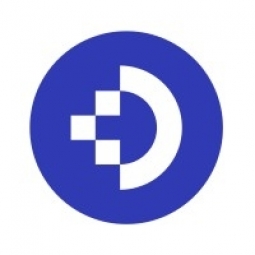Customer Company Size
SME
Region
- America
Country
- United States
Product
- DocuWare
Tech Stack
- Electronic Document Management System
Implementation Scale
- Enterprise-wide Deployment
Impact Metrics
- Productivity Improvements
- Cost Savings
Technology Category
- Application Infrastructure & Middleware - Data Exchange & Integration
Applicable Industries
- Healthcare & Hospitals
Applicable Functions
- Human Resources
Services
- System Integration
About The Customer
The Biggest Loser Resorts are award-winning, fitness and wellness destinations that offer a results-oriented, calorie-controlled program structured to make getting healthy simple and achievable. Their mission is to provide their guests with a memorable, life-changing experience through fitness, nutrition, education, relaxation, and camaraderie. The resorts operate in Ivins, Utah, Malibu, California, and Niagara/Buffalo, New York. They are the exclusive resort licensee of NBCUniversal Television Consumer Products and Reveille, LLC.
The Challenge
The Biggest Loser Resorts, a well-known fitness and wellness resort, wanted to streamline its accounting processes across its three locations in Utah, California, and New York. The resort was looking to reduce document processing time, streamline invoice approval for internal and remote employees, and strengthen document retention compliance. The resort also wanted to adopt environmentally healthy business practices. The challenge was to find a solution that could address these needs while also providing secure archiving.
The Solution
To help The Biggest Loser Resort move to a digital work process, an Authorized DocuWare Partner installed three Fujitsu 6120 scanners and rolled out DocuWare to165 employees in eight departments. The Accounts Payable process was the first to benefit from electronic workflow. Purchases are made by each department; when invoices arrive they are scanned and routed to the department head for approval. Using electronic stamps, invoices can be approved or declined and comments can be added without permanently altering the original document. The Human Resources department is using DocuWare to store sensitive documents which have a long term retention time. This eliminates boxes and cabinets of documents, strengthening document retention compliance and lowering potential legal liability. Additionally, the sharing of information between departments is faster and easier thanks to DocuWare.
Operational Impact

Case Study missing?
Start adding your own!
Register with your work email and create a new case study profile for your business.
Related Case Studies.

Case Study
Hospital Inventory Management
The hospital supply chain team is responsible for ensuring that the right medical supplies are readily available to clinicians when and where needed, and to do so in the most efficient manner possible. However, many of the systems and processes in use at the cancer center for supply chain management were not best suited to support these goals. Barcoding technology, a commonly used method for inventory management of medical supplies, is labor intensive, time consuming, does not provide real-time visibility into inventory levels and can be prone to error. Consequently, the lack of accurate and real-time visibility into inventory levels across multiple supply rooms in multiple hospital facilities creates additional inefficiency in the system causing over-ordering, hoarding, and wasted supplies. Other sources of waste and cost were also identified as candidates for improvement. Existing systems and processes did not provide adequate security for high-cost inventory within the hospital, which was another driver of cost. A lack of visibility into expiration dates for supplies resulted in supplies being wasted due to past expiry dates. Storage of supplies was also a key consideration given the location of the cancer center’s facilities in a dense urban setting, where space is always at a premium. In order to address the challenges outlined above, the hospital sought a solution that would provide real-time inventory information with high levels of accuracy, reduce the level of manual effort required and enable data driven decision making to ensure that the right supplies were readily available to clinicians in the right location at the right time.

Case Study
Gas Pipeline Monitoring System for Hospitals
This system integrator focuses on providing centralized gas pipeline monitoring systems for hospitals. The service they provide makes it possible for hospitals to reduce both maintenance and labor costs. Since hospitals may not have an existing network suitable for this type of system, GPRS communication provides an easy and ready-to-use solution for remote, distributed monitoring systems System Requirements - GPRS communication - Seamless connection with SCADA software - Simple, front-end control capability - Expandable I/O channels - Combine AI, DI, and DO channels

Case Study
Driving Digital Transformations for Vitro Diagnostic Medical Devices
Diagnostic devices play a vital role in helping to improve healthcare delivery. In fact, an estimated 60 percent of the world’s medical decisions are made with support from in vitrodiagnostics (IVD) solutions, such as those provided by Roche Diagnostics, an industry leader. As the demand for medical diagnostic services grows rapidly in hospitals and clinics across China, so does the market for IVD solutions. In addition, the typically high cost of these diagnostic devices means that comprehensive post-sales services are needed. Wanteed to improve three portions of thr IVD:1. Remotely monitor and manage IVD devices as fixed assets.2. Optimizing device availability with predictive maintenance.3. Recommending the best IVD solution for a customer’s needs.

Case Study
HaemoCloud Global Blood Management System
1) Deliver a connected digital product system to protect and increase the differentiated value of Haemonetics blood and plasma solutions. 2) Improve patient outcomes by increasing the efficiency of blood supply flows. 3) Navigate and satisfy a complex web of global regulatory compliance requirements. 4) Reduce costly and labor-intensive maintenance procedures.

Case Study
Cloud-based healthcare solution for Royal Philips
Royal Philips wanted to launch its cloud-based healthcare solution HealthSuite Digital Platform in China to deliver services to help cope with challenges related to urbanization and population growth. Philips wanted to achieve this goal by combining mobile, cloud computing and big data technologies. To bring this platform and product to market, Philips required cloud computing and local technical service capabilities in China, in addition to a flexible IT infrastructure that could handle user requests.








